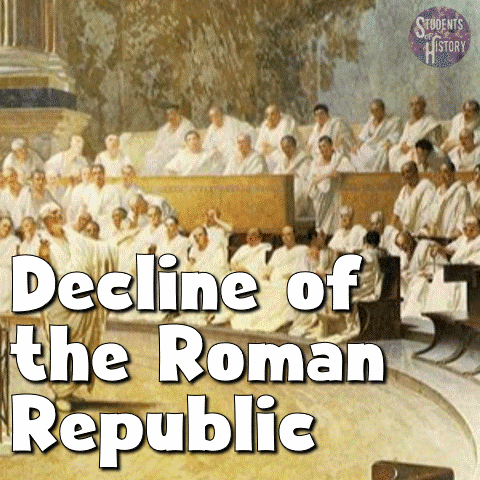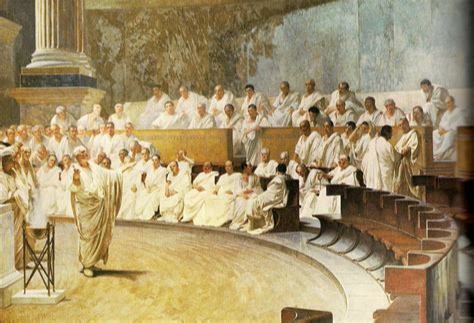The Decline of the Roman Republic

The Roman Republic lasted for nearly 500 years. This system of government allowed people to vote for political officials and is the basis of many democracies we see today. The Roman Republic had a constitution, laws, elected officials and a governing body of senators.
The government was complex with many leaders and councils at different levels. However, many problems began to emerge with the growth of the republic.
Economic problems, government corruption, crime and private armies, and the rise of Julius Caesar as dictator all led to the eventual fall of the Roman Republic in 27 BCE.
Rome’s continued expansion resulted in an influx of money and revenue for the Republic. Corruption and bribery increased in the government as officials sought to gain power and access to this money.

Wealthy people bought votes and gave favors to their friends. Bribery and corruption were rampant and led to the commoners distrusting the Senate.
Many people were brought back as enslaved people from Rome’s conquests. This created an influx of free labor and hurt the lower classes and disrupted the agricultural system. Many local farmers could not compete with the wealthy farms that used slave labor and they eventually lost their land.

When Rome’s conquests declined, so did their sources of income. This decrease in money resulted in a loss of support for the people of Rome and created an enormous stress on the economy. Officials began to tax their citizens furthering discontent.
Without a police force, crime was out of control in Rome and people feared for their safety. The wealthy hired their own private armies for protection.
Many of these private armies killed people and stole their land.
These armies grew large, and in some cases owed allegiance to a private citizen as opposed to the Roman government.
Historians believe the fall of the Roman Republic began in 59 BCE when Julius Caesar, Pompey the Great, and Marcus Licinius Crassus formed an alliance to rule Rome. Crassus died in battle, leaving Caesar and Pompey to turn against each other for the control of Rome.
After his victory in the wars with Pompey, Caesar declared himself emperor of Rome. Once Rome had a dictator, it would be impossible to transition back to a republic.
Although Caesar only ruled for a short time before he was assassinated, the damage was done. Rome would then fall into political disarray and never to return to the republic that once helped build this great power.